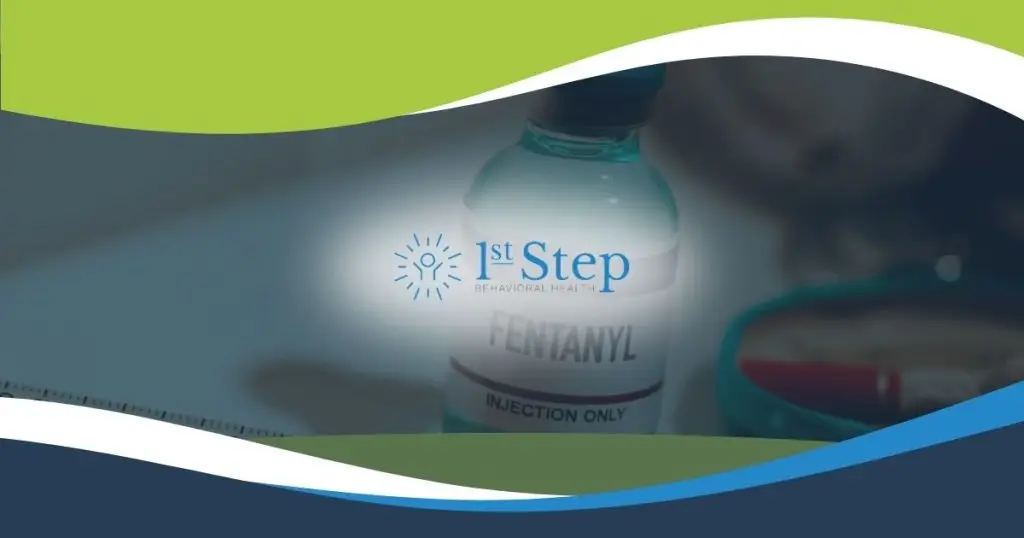Opioid addiction is a serious problem in the United States. The country is in the grips of an opioid abuse crisis, and there is no sign of it slowing down. Millions of people use prescription and illicit opioids. Many will become addicted to them or lose their lives.
Research released in 2021 showed that over 100,000 people died as a result of opioid-related causes in the previous year. A potent opioid called fentanyl is involved in about 75% of overdose deaths.
Fentanyl is a powerful and highly addictive opioid. People who develop a physical dependence on fentanyl often need professional treatment to stop using it safely.
This article will detail what happens when people stop taking fentanyl. You will learn about withdrawal symptoms, how long withdrawal may last, and how to find treatment to have a safe detox.
Fentanyl addiction is life-threatening. Get the help you need to reduce the risk of overdose and other long-term harm.
Contact the First Step Behavioral Health team to learn about our comprehensive treatment programs. You can also verify your insurance and set up an intake evaluation.
What is Fentanyl?
Fentanyl is a potent synthetic (manufactured) opioid. Doctors may prescribe fentanyl to help patients manage moderate to severe pain. Patients may take fentanyl for chronic pain or while healing from surgery.
Fentanyl is available in several forms, including:
- Tablets
- Patches
- Nasal spray
- Injectable liquid
- Lozenges
- Powder (most common form of illicit fentanyl)
Fentanyl is effective at relieving pain. Users may also experience additional side effects, including euphoria and relaxation. People may like the way they feel while using fentanyl. This can make them want to use more of it than they should.
Fentanyl is a highly addictive opioid medication. Doctors typically prescribe fentanyl for short periods. This can reduce the risk of overdose. Still, some people who use fentanyl as prescribed may still have signs of dependence.
People who become dependent on fentanyl need addiction treatment to avoid complications during withdrawal and relapse.
Fentanyl is very potent. Tiny amounts can be lethal. People who misuse fentanyl are at risk for overdose. Drug dealers may also add fentanyl to illicit opioids and other drugs. Using any illicit drug puts you at risk of fentanyl exposure and overdose.
Fentanyl Withdrawal Symptoms
When someone with fentanyl addiction suddenly stops using it, they will experience opioid withdrawal symptoms.
Fentanyl withdrawal symptoms include:
- Muscle weakness
- Appetite loss
- Nausea
- Diarrhea
- Excessive sweating
- Elevated blood pressure
- Increased heart rate
- Anxiety
- Insomnia
- Chills
- Intense cravings
Many people find that fentanyl withdrawal is very challenging. The physical and emotional symptoms people experience during withdrawal can make them very uncomfortable. Many people relapse if they do not have support in a medically-managed detox program.
Fentanyl Withdrawal Timeline
Several things can affect your fentanyl withdrawal timeline. The severity and duration of your symptoms depend on your health, your opioid use, and other factors. However, the following is a typical fentanyl withdrawal timeline.
8-48 hours
People who use short-acting opioids typically begin experiencing symptoms of fentanyl withdrawal within the first 8 to 12 hours. People who use long-acting opioids may not experience symptoms for several days.
Days 4-20
People experience symptoms that include:
- Chills
- Sweating
- Nausea
- Weakness
- Depression
- Insomnia
- Anxiety
Symptoms can change throughout the first few weeks of withdrawal. They may get stronger or weaker as your body begins to adjust to the absence of opioids.
After 20 days
Withdrawal symptoms typically become much more manageable after about 20 days. However, some people develop Post Acute Withdrawal Syndrome (PAWS). People with PAWS experience long-lasting symptoms, including:
- Depression
- Anxiety
- Low mood
- Insomnia
These symptoms may last for weeks or months after they stop using fentanyl.
How Long Does Fentanyl Withdrawal Last?
Fentanyl withdrawal is not a one-size-fits-all process. The severity of your symptoms and how long withdrawal lasts depends on:
- Your general health
- How long you used fentanyl
- What dosage your body is used to
- Other substances you’ve been using
- How often you used fentanyl
For most people, acute withdrawal symptoms last for one to two weeks.
Treatment for Fentanyl Withdrawal
An addiction treatment center provides medically managed detox programs. These programs can keep you safe during fentanyl withdrawal.
Fentanyl detox programs include:
- Assessments and screenings
- Medications to reduce the risk of complications and manage withdrawal symptoms
- Individual, family, and group counseling
- Relapse prevention education
- Nutrition support, massage, mindfulness, and other holistic therapies
- Aftercare planning
Getting treatment in a medically-supported detox program can keep you safe and comfortable during withdrawal. You will have the support of medical and mental health professionals at all times, as well as support from a community of peers.
Find Help Now
If you or someone you love lives with opioid use disorder, you are not alone. First Step Behavioral Health specialists can provide medical detox and treatment that can help you regain control over your life.
Contact us now to learn about our medically-managed withdrawal and fentanyl addiction treatment programs. You may also set up an intake evaluation or find other forms of support.
Jump to a Section
Call (855) 425-4846
